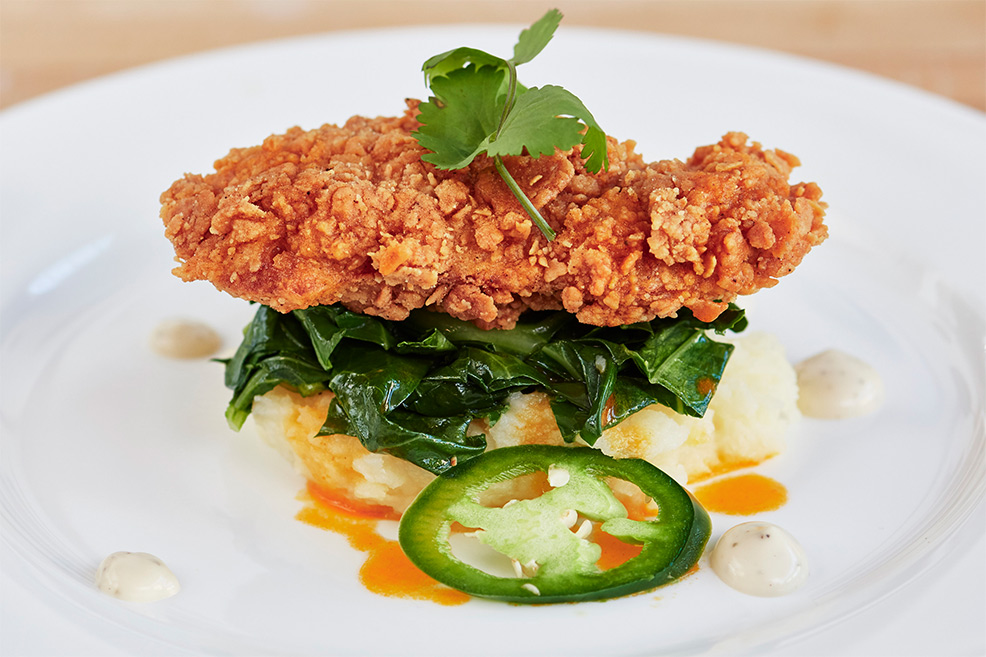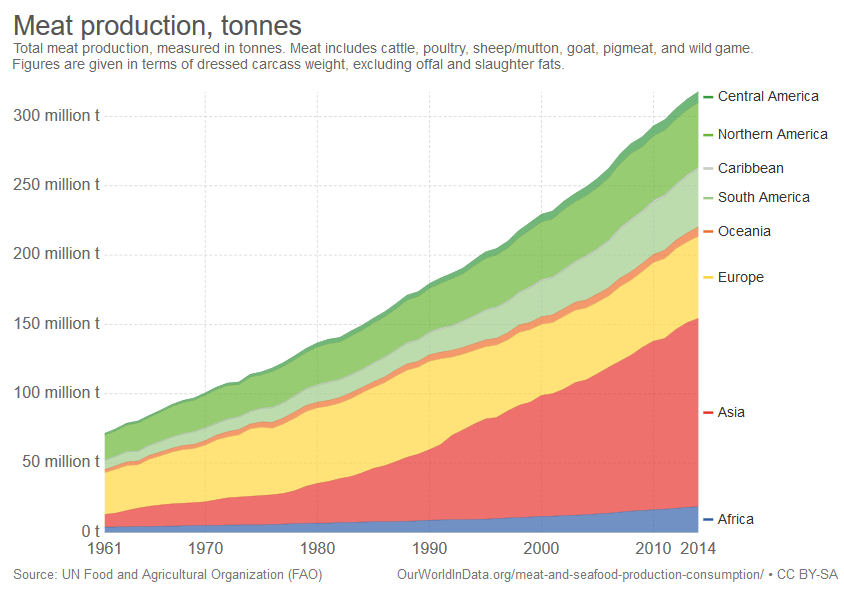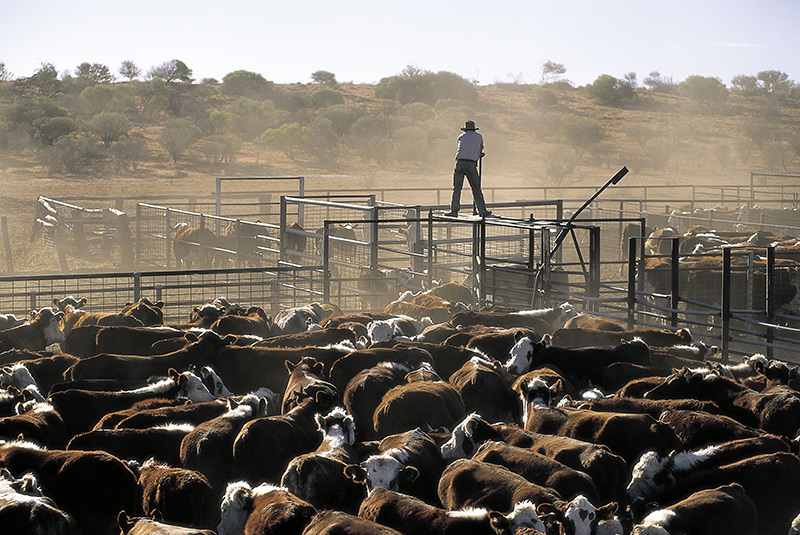
1st February 2018 Tyson Foods invests in lab-grown meat Tyson Foods, one of the world's largest beef, pork and poultry processors, has announced it will invest in Memphis Meats – a food tech startup producing cultured meat from lab-grown cells.
Between 1950 and 2000, worldwide meat production increased by nearly five times, and the amount eaten per person doubled. Today, global consumers spend over $800 billion on meat each year and the amount eaten will double again in the coming decades. The world population continues to mushroom and is forecast to reach nine billion by the 2040s, with more and more people seeking higher protein foods. The physical space requirements and other environmental impacts of meat production are huge. It has a far higher "energy footprint" than any other food and takes 75 times more energy to produce than corn. While it takes 127 gallons of water to grow a pound of corn, producing the same weight in beef requires between 1,800 and 2,500 gallons of water, up to 20 times as much. Raising animals for human consumption accounts for 40% of agricultural output in industrialised countries, grazing occupies 26% of Earth's ice-free terrestrial surface and feed crop production uses one-third of all arable land. The UN's Food and Agriculture Organisation (FAO) has stated, "the livestock sector is a major stressor on many ecosystems and on the planet as a whole. Globally, it is one of the largest sources of greenhouse gases (GHG) and one of the leading causal factors in the loss of biodiversity – while in developed and emerging countries, it is perhaps the leading source of water pollution." In November last year, 15,364 of the world's scientists signed a "Warning to Humanity" calling for, among other things, a drastic reduction of our per capita consumption of meat. Alongside the environmental impacts are ethical concerns about farming practices and the treatment of animals. The numbers being slaughtered each year around the world are staggering – with chickens (58,110,000,000), ducks (2,817,000,000), pigs (1,383,000,000), turkeys (654,000,000), geese and guineafowl (649,000,000), sheep (517,000,000), goats (430,000,000), cattle (296,000,000) and bison (24,000,000) totalling almost 65 billion, or over 2,000 per second.
In response to the growing sustainability crisis and a shift in consumer attitudes, a number of companies and individuals have begun looking to new and alternative methods of meat production. One of the most exciting ideas to emerge in recent years is cultured meat, also called lab-grown or in vitro meat. This is often featured in science fiction, but has now gained serious attention as the technical and financial viability moves closer to reality. It has the potential to vastly shrink the land and water needed for meat production, while eliminating the need for animal slaughter. The first cultured beef burger, created by Dr. Mark Post from Maastricht University, was demonstrated at a London press conference in August 2013. It was produced from the stem cells of a cow, formed into strips of muscle which combined to make a burger-sized portion. Unfortunately the meal was rather on the pricey side at £250,000 ($384,000). The anonymous funder was later revealed to be Google pioneer, Sergey Brin. Since that first public trial, several startups have made advances in the field. One example is Memphis Meats, based in San Francisco and founded by three scientists in 2015. This company plans to create various cultured meat products, using biotechnology to induce stem cells to differentiate into muscle tissue and to "grow" the foods in bioreactors. In February 2016, they demonstrated a cultured meatball, and in March 2017 they released a video of cultured chicken and duck dishes. The company raised $17 million from a Series A funding round in August 2017, which included investment from Bill Gates and Richard Branson, among others.
Memphis Meats has now gained further support – this week announcing an investment from the venture capital arm of Tyson Foods, one of the world's largest beef, pork and poultry processors. Although the terms were not disclosed, Tyson Foods' stake in the business will accelerate product development and enable Memphis Meats to expand its team of chefs, scientists and business people. The initial production cost of the company's beef was $18,000 per pound ($40,000/kg) and its cultured poultry was $9,000 per pound ($20,000/kg). By the middle of 2017, they had reduced the poultry cost to below $2,400 per pound ($5,280/kg) – an impressive achievement compared to the London burger mentioned earlier, but still far from the level needed for mainstream consumer use. However, Memphis Meats anticipates even greater cost improvements in the near future and is aiming for commercial release of its products by 2021. "We are excited that Tyson Foods will be joining us in our mission to bring meat to the table in a sustainable, affordable and delicious way," said Uma Valeti, M.D., co-founder and CEO of Memphis Meats. "Our vision is for the world to eat what it loves, in a way that addresses today's challenges for the environment, animal welfare and public health. We are accelerating our work and building out a world-class team to make this a reality." "We're excited about this opportunity to broaden our exposure to innovative, new ways of producing meat, especially since global protein demand has been increasing at a steady rate," said Justin Whitmore, Chief Sustainability Officer at Tyson Foods. "We continue to invest significantly in our traditional meat business – but also believe in exploring additional opportunities for growth that give consumers more choices." "We are thrilled that Tyson Foods has joined the investor coalition of Memphis Meats," added Heidi Roizen, Partner at co-investor DFJ. "Memphis Meats is a critically important company to the future of food, and their mission to produce meat in an innovative and sustainable way is incredibly compelling to us as both investors and as lovers of animals. We are delighted to be a part of their amazing journey." In the decades ahead, cultured meat is likely to see widespread adoption. Perhaps one day, in the next century or two, the raising and slaughtering of animals for their meat could be largely or entirely eliminated. Our future descendants may look back in horror at the farming methods of today – just as we now view many old-fashioned practices of the past. The vast areas of land used for grazing and feed crop production could be gradually repurposed and converted back to their original state, or turned into huge parks, with extinct species resurrected through genetic engineering and rewilding programs.
Comments »
If you enjoyed this article, please consider sharing it:
|









